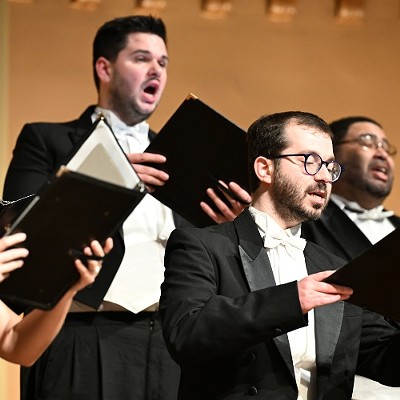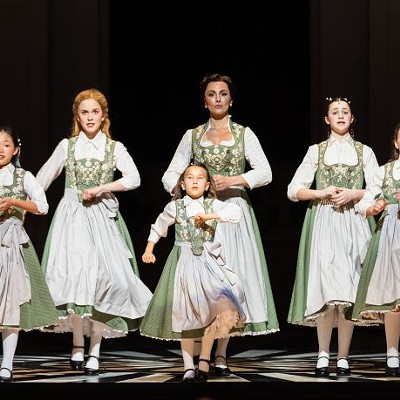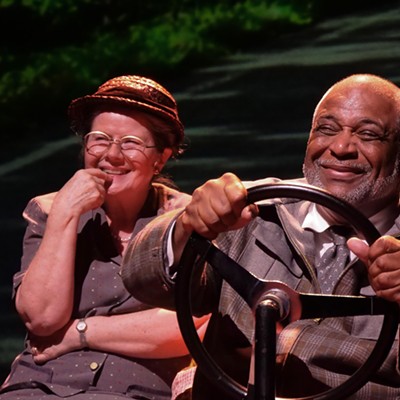Support Us
Houston's independent source of
local news and culture
account
- Welcome,
Insider - Login
- My Account
- My Newsletters
- Contribute
- Contact Us
- Sign out
Gertrude Barnstone: Home Movie Chronicles a Life Well Lived
Olivia Flores Alvarez November 5, 2015 7:00AM
[
{
"name": "Related Stories / Support Us Combo",
"component": "11591218",
"insertPoint": "4",
"requiredCountToDisplay": "4"
},{
"name": "Air - Billboard - Inline Content",
"component": "11591214",
"insertPoint": "2/3",
"requiredCountToDisplay": "7"
},{
"name": "R1 - Beta - Mobile Only",
"component": "12287027",
"insertPoint": "8",
"requiredCountToDisplay": "8"
},{
"name": "Air - MediumRectangle - Inline Content - Mobile Display Size 2",
"component": "11591215",
"insertPoint": "12",
"requiredCountToDisplay": "12"
},{
"name": "Air - MediumRectangle - Inline Content - Mobile Display Size 2",
"component": "11591215",
"insertPoint": "4th",
"startingPoint": "16",
"requiredCountToDisplay": "12"
}
,{
"name": "RevContent - In Article",
"component": "12527128",
"insertPoint": "3/5",
"requiredCountToDisplay": "5"
}
]
It took filmmaker Jon Schwartz and his small crew just three hours to shoot Gertrude Barnstone: Home Movie. It took Barnstone 90 years to live the amazing life the essay film captures.
Born in Houston in 1925, she started studying art at the Museum of Fine Arts, Houston when she was just seven years old. In the film, she recounts that her mother took her to meet with the museum director one day. He handed her a paper and a pencil and asked her to draw a circle. Barnstone did. "You're in," the director told her. At the time, the museum didn't have children's classes, so the young Barnstone was placed in adult classes, painting nudes right alongside the older students.
After she graduated from Rice University in 1945, she became an actress for a short while. Then, disregarding the advice her mother gave her — "Never get married. Never have kids. They ruin everything" — she became a wife and mother, marrying architect Howard Barnstone and raising a family.
In the mid-1960s, her children were in elementary school. Barnstone became so enraged by the racial discrimination in Houston's public schools at the time that she got herself elected to the school board. She was one of only two liberals on the board (African-American Hattie Mae White was the other).
Despite angry opposition, the two women were instrumental in successfully integrating Houston's schools. Barnstone jokes that the televised school board meetings were called The Monday Night Fights because of the vocal and spirited debates among the board members.
She left the school board after serving five years.
Howard Barnstone was extremely talented...and troubled. Mental health issues made him volatile. Barnstone eventually divorced him. The two remarried a short while later, but it wasn't exactly a reconciliation. Barnstone explains the remarriage allowed her and her children access to his health insurance. Howard Barnstone killed himself a few years later.
On her own after the divorce, she enrolled in a welding class at the community college and reinvigorated her career as an artist. (She stopped welding her oversize creations just five years ago after a fall in her studio.)
A longtime friend of Barnstone's, Jon Schwartz structured Home Movie very simply. It shows Barnstone seated inside the Rothko Chapel talking into a stationary camera, discussing the various phases of her life. That's it.
“I didn’t want to do just a biographical film with [Texas political activist] Sissy Farenthold coming on camera and saying, “Gertrude’s a wonderful person,” or whatever she would have said. I thought, 'Gertrude's such an interesting person, we can do this where she’s the only voice in the film.' So we did.”
The 57-minute documentary was a rather impromptu project, coming together very quickly. “I asked her if she would sit still long enough so that we could do it, and she said, 'Sure, let’s do it,'” he tells us.
Schwartz was able to film inside the Rothko Chapel, a rarity. (The fact that Barnstone's late husband had been one of the building's designers may have had something to do with the Chapel's cooperation.)
There was no rehearsal; Barnstone didn't know what questions Schwartz would ask. The narrative follows a more or less chronological order. She moves from her childhood to her work as an artist, her involvement in desegregation to her husband's suicide with the same candor and seeming lack of regret.
Each scene was the first take, Schwartz tells us. “It's just Gertrude talking. It worked, I hope.”
Filmmaker Jon Schwartz introduces the screening Gertrude Barnstone: Home Movie. Gertrude Barnstone and photographer-cinematographer Arthur Meyerson join him for a post-film discussion. 1 p.m. November 8. Museum of Fine Arts, Houston, 1001 Bissonnet. For information, call 713-639-7515 or visit mfah.org. $9.
KEEP THE HOUSTON PRESS FREE...
Since we started the Houston Press, it has been defined as the free, independent voice of Houston, and we'd like to keep it that way. With local media under siege, it's more important than ever for us to rally support behind funding our local journalism. You can help by participating in our "I Support" program, allowing us to keep offering readers access to our incisive coverage of local news, food and culture with no paywalls.
Olivia Flores Alvarez
Contact:
Olivia Flores Alvarez
Trending Arts & Culture
- The 10 Best And Most Controversial Hustler Magazine Covers Ever (NSFW)
- The Hills Are Alive at the Wortham With HGO's The Sound of Music
- Reviews For The Easily Distracted:
Boy Kills World
-
Sponsored Content From: [%sponsoredBy%]
[%title%]

Don't Miss Out
SIGN UP for the latest
arts & culture
news, free stuff and more!
Become a member to support the independent voice of Houston
and help keep the future of the Houston Press FREE
Use of this website constitutes acceptance of our
terms of use,
our cookies policy, and our
privacy policy
The Houston Press may earn a portion of sales from products & services purchased through links on our site from our
affiliate partners.
©2024
Houston Press, LP. All rights reserved.




